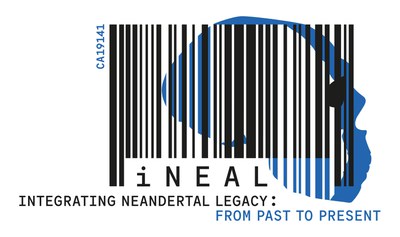Integrating Neandertal Legacy: From Past to Present
 Neandertals are the first human population that can be truly recognized as pan-European phenomenon. Traces of their cultural and/or skeletal remains can be found in most European countries and cover a period of more than 250 000 years. A lot of scientific work has been done on various aspects of their heritage and there is a vast collection of archaeological and anthropological data available. However, there is still a discrepancy in available and updated datasets from various countries. In addition, communication between scientists from various fields and from various countries is still based on personal connections between individual scientists, mostly related to specific projects. This Action is a long overdue attempt to bridge the geographic, language, disciplinary-and-data specific gap, as well as a gap created by traditions of different disciplines in different European countries. Through a combined, scientifically-based and geographically inclusive approach, creation of a growing inclusive database, and promoting dialogue among scientists and creating guidelines for research, a solid base for better understanding of Neandertals can be reached. Further, this will allow a base for inclusion of Neandertal legacy into the present, through scientifically based guidelines for public presentation and further actions for promoting their heritage via inclusion of non-scientific stakeholders, such as administrators, museum and cultural workers, touristic sector, small and medium enterprises and other interested parties.
Neandertals are the first human population that can be truly recognized as pan-European phenomenon. Traces of their cultural and/or skeletal remains can be found in most European countries and cover a period of more than 250 000 years. A lot of scientific work has been done on various aspects of their heritage and there is a vast collection of archaeological and anthropological data available. However, there is still a discrepancy in available and updated datasets from various countries. In addition, communication between scientists from various fields and from various countries is still based on personal connections between individual scientists, mostly related to specific projects. This Action is a long overdue attempt to bridge the geographic, language, disciplinary-and-data specific gap, as well as a gap created by traditions of different disciplines in different European countries. Through a combined, scientifically-based and geographically inclusive approach, creation of a growing inclusive database, and promoting dialogue among scientists and creating guidelines for research, a solid base for better understanding of Neandertals can be reached. Further, this will allow a base for inclusion of Neandertal legacy into the present, through scientifically based guidelines for public presentation and further actions for promoting their heritage via inclusion of non-scientific stakeholders, such as administrators, museum and cultural workers, touristic sector, small and medium enterprises and other interested parties.
Project details
Action member: Marco Peresani
Funding source: COST
Start date 15/10/2020 - end date 14/10/2024
Participants
- Institute for Anthropological Research, Croatia - Chair
- University of Bologna, Italy
- Eberhard Karls University of Tübingen, Germany
- Universidad Autónoma de Madrid, Spain
- Univiersity of Vienna, Austria
- Archaeological Museum in Zagreb, Croatia
- University of Ljubljana, Slovenia
- Institut Català de Paleoecologia Humana i Evolució Social, Spain
- Center for Development and Integration, Albania
- Royal Belgian Institute of Natural Sciences, Belgium
- National Institute of Archaeology with Museum, Bulgarian Academy of Sciences, Bulgaria
- University of Zagreb - Faculty of Humanities and Social Sciences, Croatia
- The Cyprus Institute, Cyprus
- Institute of Archaeology, Brno, Czech Republic
- Moesgaard Museum, Denmark
- Aalborg University, Denmark
- AIx-Marseille University, France
- Neanderthal Museum, Germany
- Eötvös Loránd University, Hungary
- Sapienza University of Rome, Italy
- University of Malta, Malta
- Erasmus School of Philosophy, Netherlands
- NI Archaeological Museum of North Macedonia, North Macedonia
- Archaeological Museum in Kraków, Poland
- Jagiellonian University, Poland
- Universidade Autónoma de Lisboa, Portugal
- Institute of Archaeology "Vasile Parvan", Romania
- University of Belgrade, Faculty of Philosophy, Serbia
- Institute of Archaeology, Slovak Academy of Sciences, Slovakia
- ETH Zurich, Switzerland
- Bilecik Şeyh Edebali University, Turkey
- University of Aberdeen, United Kingdom
- Università di Ferrara, Italy
- National Museum in Belgrade, Serbia
- Ikerbasque - Faculty of Humanities (UPV-EHU), Spain
- Universidad de Cantabria, Spain
